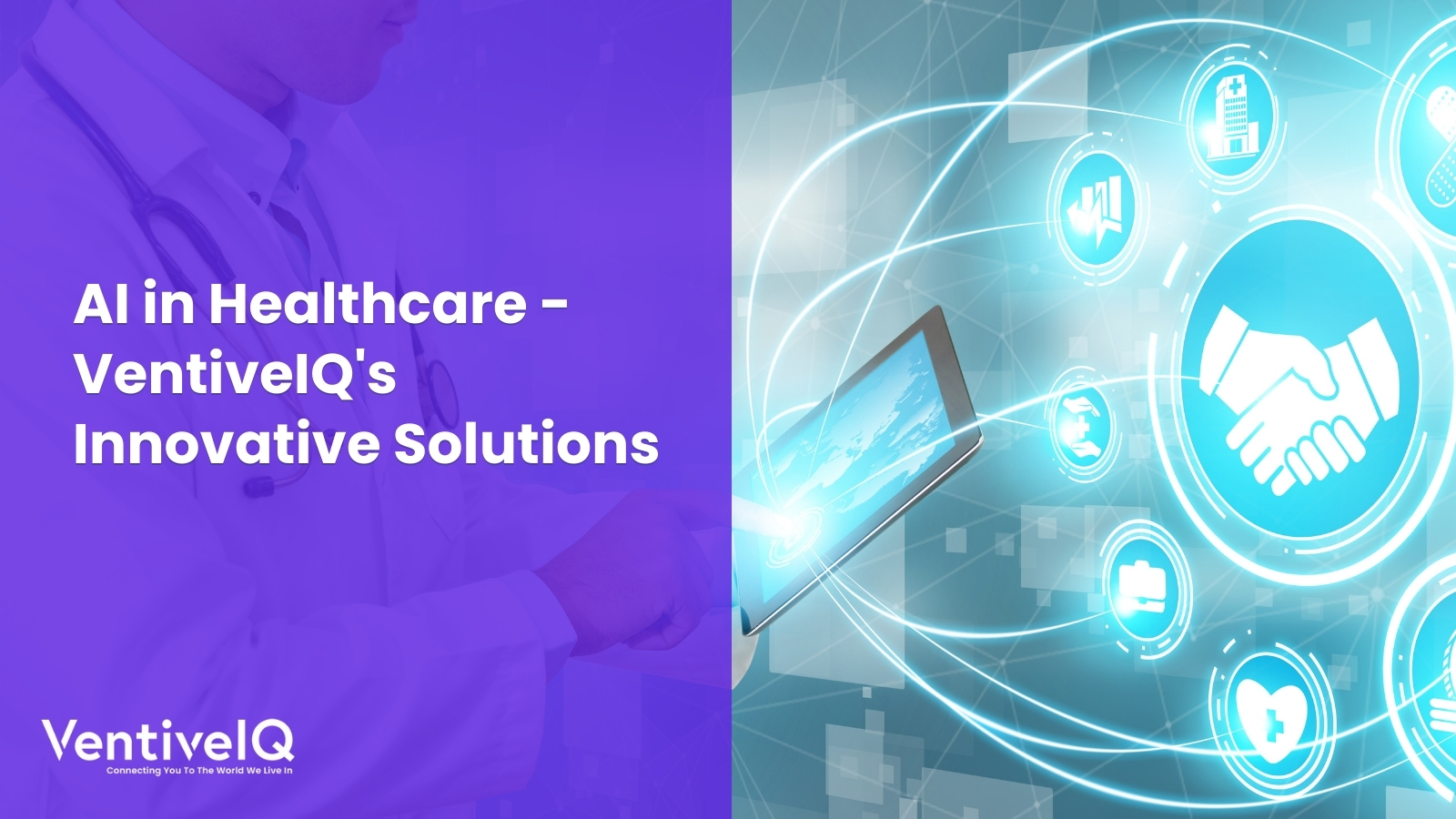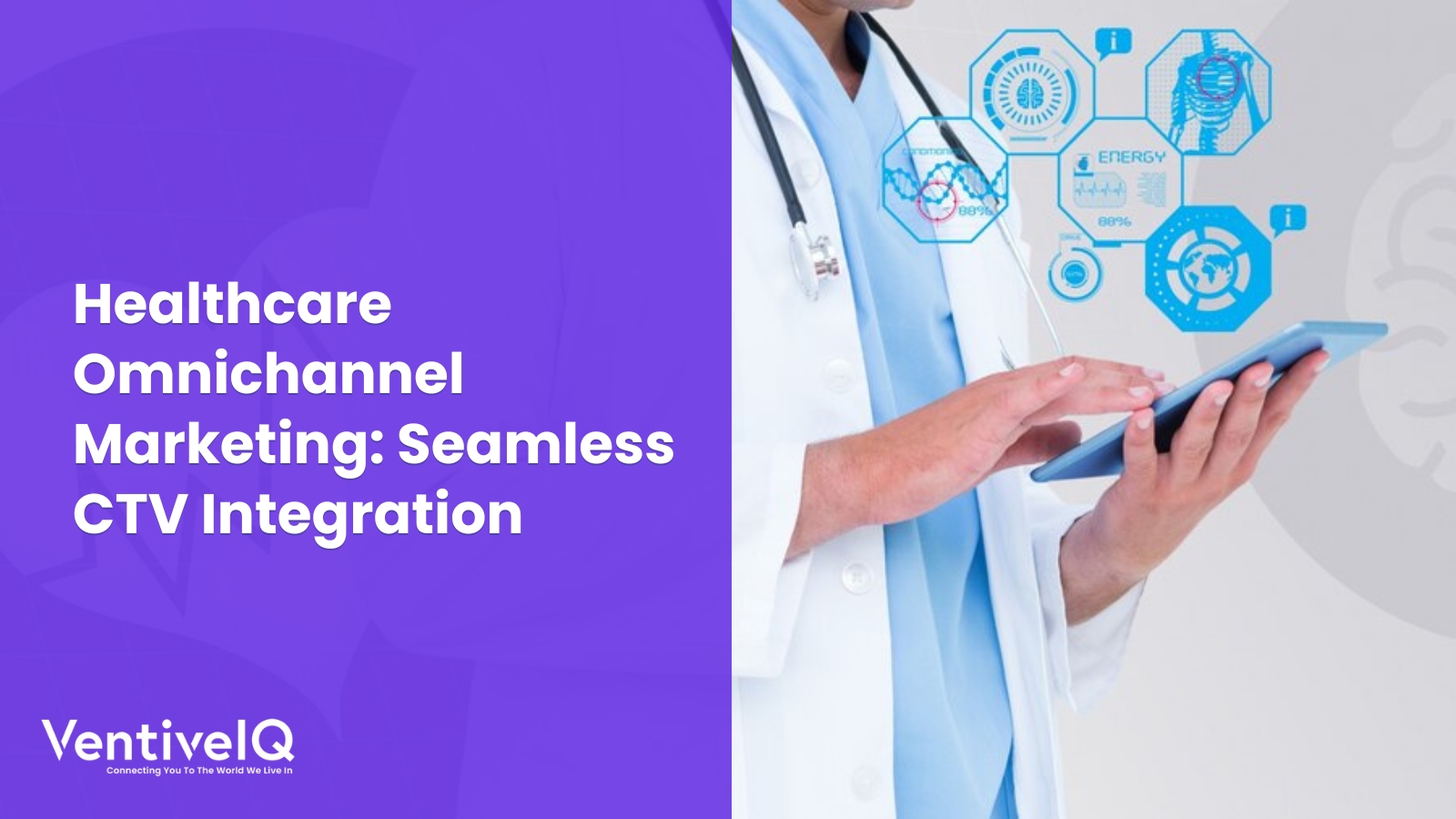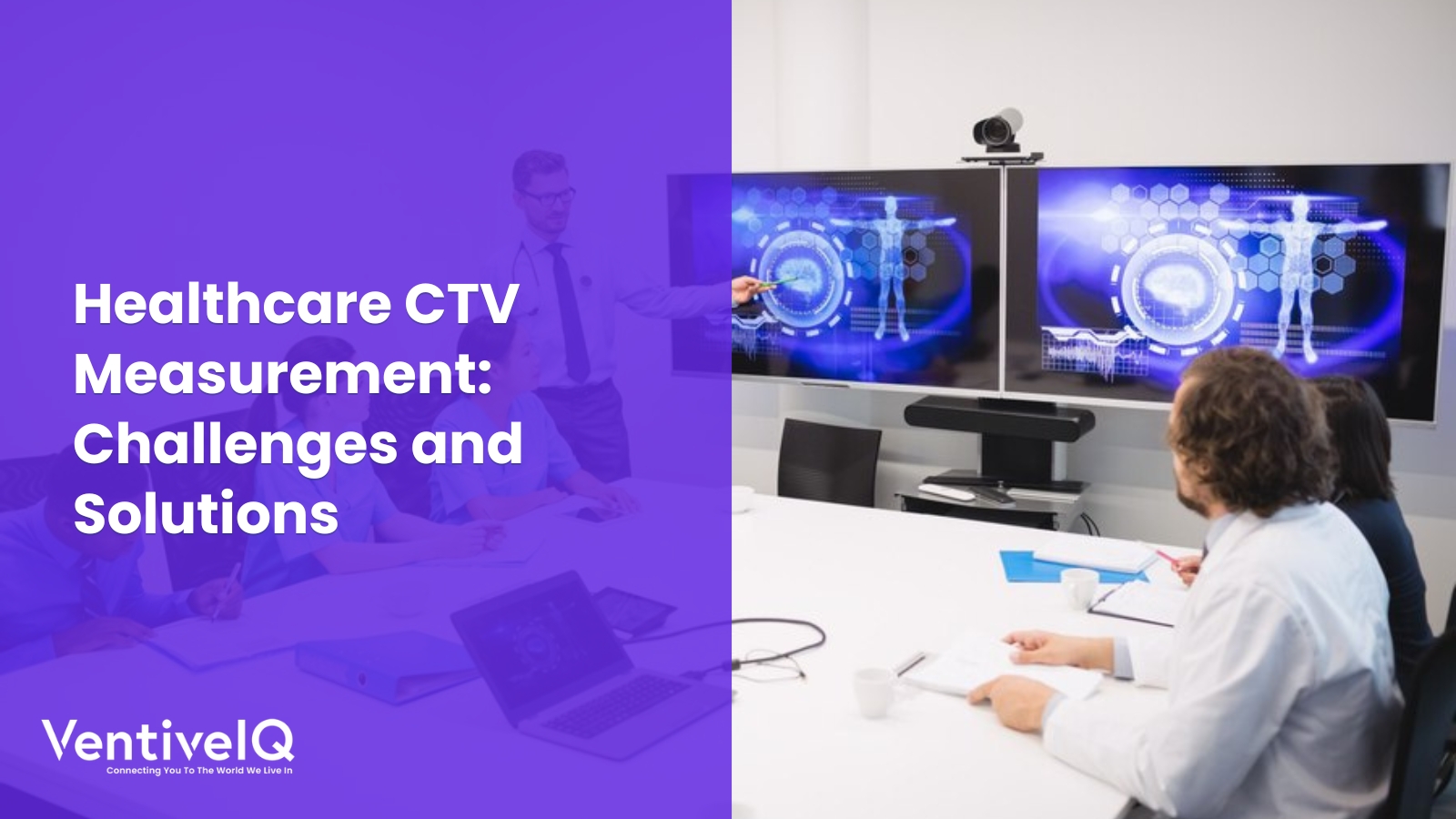Discover how VentiveIQ leverages AI in healthcare solutions. Explore the impact and challenges of this data-driven approach while safeguarding data privacy.
In today’s fast-changing healthcare field, the inclusion of artificial intelligence (AI) has become a game-changer, completely transforming how patients are cared for, diagnosed, and treated. Among the trailblazers in this domain, VentiveIQ stands out with its innovative solutions that harness the power of AI to drive positive outcomes while upholding stringent standards of data privacy and security.

Introduction
As we delve into the realm of AI in healthcare, it becomes evident that innovative solutions hold the potential to redefine the delivery of medical services, enhance diagnostic accuracy, streamline operations, and improve patient outcomes. However, amidst the promises of technological advancement, it is imperative to navigate the intricate landscape of challenges and considerations, ensuring that decisions are made judiciously, with a steadfast commitment to ethical principles and patient welfare.
Understanding the Need for Innovation in Ventilation Management
For patients with severe respiratory illness, mechanical ventilation becomes a lifeline. However, traditional ventilator settings often rely on static protocols or subjective physician judgment, leading to potential risks of over-ventilation or under-ventilation. This can have serious consequences, including prolonged ICU stays, increased risk of ventilator-induced lung injury (VILI), and even mortality.
VentiveIQ’s AI-Driven Approach: Personalized Care at Its Best
VentiveIQ’s innovative solutions leverage AI in Healthcare and machine learning algorithms to personalize ventilator settings for each patient in real-time. Their flagship product, the IQ™ platform, continuously analyzes a multitude of physiological data points, including lung mechanics, blood gases, and hemodynamics. Using this data, the AI engine recommends personalized ventilation settings tailored to the individual patient’s needs.
The Benefits of AI in Ventilation Management
- Reduced risk of VILI: By optimizing ventilation settings, AI can help prevent lung damage caused by excessive pressure or volume.
- Improved patient outcomes: Studies have shown that AI-driven ventilation can lead to shorter ICU stays, reduced need for sedation, and improved patient survival rates.
- Enhanced clinician efficiency: AI in Healthcare can assist clinicians by automating routine tasks and providing real-time insights, allowing them to focus on more complex patient care aspects.

Challenges and Trade-offs to Consider
While the potential benefits of AI in healthcare are undeniable, it’s crucial to acknowledge the challenges and trade-offs associated with this technology. Some key considerations include:
- Data privacy and security: Protecting patient data is paramount. VentiveIQ prioritizes robust security measures and adheres to strict data privacy regulations like HIPAA.
- Algorithmic bias: AI algorithms can perpetuate existing biases present in healthcare data. VentiveIQ actively works to mitigate bias in its algorithms and ensure fairness across diverse patient populations.
- Transparency and explainability: Clinicians need to understand how AI recommendations are made to ensure trust and informed decision-making. VentiveIQ strives to provide transparent explanations for their AI’s reasoning.
- Integration with existing workflows: Implementing new technologies can disrupt established workflows. VentiveIQ provides comprehensive training and support to facilitate seamless integration into clinical settings.
The VentiveIQ Perspective: A Responsible Approach to AI in Healthcare
At VentiveIQ, they believe that AI Ethics has the potential to transform healthcare for the better, but it’s essential to approach this technology responsibly and ethically. They prioritize:
- Data privacy: They ensure patients retain control over their data and adhere to the highest data security standards.
- Algorithmic fairness: They actively mitigate bias and promote fairness in their AI development and deployment.
- Transparency and explainability: They offer straightforward explanations for AI recommendations, building trust and promoting collaboration with clinicians.
- Human-centered design: They prioritize human oversight and collaboration, ensuring AI complements, not replaces, clinical expertise.
The Future of AI in Ventilation Management: A Collaborative Path Forward
As AI continues to evolve, its role in ventilation management is poised to become even more significant. However, it’s crucial to remember that AI is a tool, not a replacement for human judgment and expertise. The future lies in collaborative partnerships between AI developers, clinicians, and policymakers. By working together, we can ensure that AI is used responsibly, ethically, and effectively to improve patient outcomes and transform healthcare for the better.

In the pursuit of innovation, VentiveIQ remains steadfast in its commitment to ethical AI deployment, recognizing the importance of striking a balance between technological advancement and ethical imperatives. By fostering a culture of responsible innovation and continuous learning, VentiveIQ seeks to harness the transformative power of AI to drive positive change in healthcare while upholding the principles of integrity, transparency, and patient-centricity.
Conclusion
The advent of AI in healthcare heralds a new era of possibilities, promising to revolutionize the delivery of medical services, enhance patient care, and drive efficiencies across the healthcare continuum. VentiveIQ’s innovative AI solutions are paving the way for a future where personalized ventilation management becomes the standard of care. By acknowledging the challenges and trade-offs involved, and prioritizing responsible development and implementation, AI has the potential to revolutionize how we care for critically ill patients. As we move forward, let’s embrace this technology with open minds and a commitment to ethical practices, ensuring that AI serves as a powerful tool for improving lives and shaping a healthier future for all.



